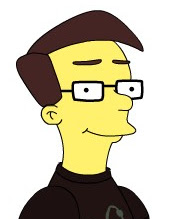14 May, 2009
God On Trial
The embedded video above is the first of nine parts of a BBC-produced movie titled "God On Trial". Released in 2008, the film tells the story of a group of Auschwitz inmates who decide to put God on trial for breach of the covenant he made with his "chosen" people.
The film is a fascinating and moving exploration of various familiar themes in the philosophy of religion: the problem of evil, theodicy, divine hiddenness, and the Euthyphro dilemma (among others), but in the context of a real-life drama rather than in dry academic papers.
The film opens with the prisoners being divided into two groups (left & right), one of which will be taken to the gas chamber on the following day. This is being done in order to make room for new arrivals (who, as it happens, arrive earlier than planned and thus become part of the drama as it unfolds). The action of the film takes place during the night while the prisoners wait sleeplessly to learn their fate in the morning.
The film's most powerful sequence comes toward the end when a learned rabbi, who has been praised by another prisoner as a living saint due to his knowledge of Torah and Law (he is said to have memorized all of the scripture) delivers a powerful speech in which he concludes that "God is not good".
The film is a moving indictment of the rather naive view of God held by a great many modern people. As the philosopher Wes Morriston recounts, the writer very nearly lost his faith during the research and writing of the script. For myself, the contextual perspective on philosophical issues with which I am more than passingly familiar provided me with fresh insight; a more personalized way of seeing some of these problems. More importantly, however, the arguments employed by the inmates who serve as God's "defenders" show a more nuanced and balanced view than that generally employed by religious (read "Christian") apologists. Indeed, this "inside look" at the Jewish apologetic approach reveals a more humanistic, deeply conflicted view than the "false bravado" one generally sees from the neo-Calvinists so ubiquitous on the internet. They realize the deep inconsistencies in their faith, yet still they persist. Indeed, when some of the men are being led off to the gas chambers, one of those who had been most virulent in his condemnation of God, and who before learning his fate spoke bravely of the ultimate meaninglessness of life, asks another, "what do we do now?". The second man replies, "we pray". And in the face of death, the defenders and accusers alike are united in prayer; not because they believe they will be saved (for they have, after all, found God guilty of breaking the covenant), but because they realize that for them, their identity as Jews is one of the things that gives their lives meaning. There is a great truth to be found here, beyond prayer, beyond the question of God's existence or his character: that there is meaning to be found in life regardless.
Understandably, this is not an "action-packed" film. The drama proceeds through character exposition and development accomplished through dialogue and speeches. But beyond the philosophical wisdom, there is a good film filled with great writing and wonderful performances (the great Stellan Skarsgård among them). I don't know how long it will be up on YouTube, so watch now or order a copy from Amazon. This is a "don't miss" for lovers of Philosophy AND cinema.
Labels:
Cinema,
Philosophy,
Religion
Subscribe to:
Post Comments (Atom)




No comments:
Post a Comment